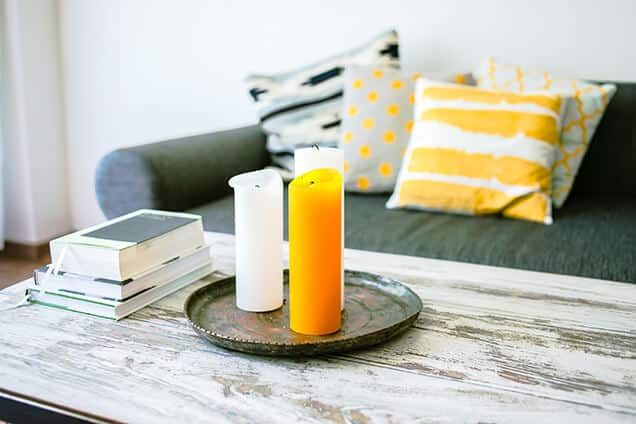How Candles Affect Indoor Air Quality
 Candles help create a romantic ambiance in a home. They add to the warmth of a home and help create a spa-like retreat. However, new research suggests that burning candles can generate indoor pollution in your home.
Candles help create a romantic ambiance in a home. They add to the warmth of a home and help create a spa-like retreat. However, new research suggests that burning candles can generate indoor pollution in your home.
Most candles on the market are made from paraffin, which is derived from petroleum. When burned, these candles release carcinogens into the air. Some of these toxins are the same ones that are produced when diesel fuel is burned.
A study, conducted by scientists at the South Carolina State University, found that exposure to certain types of candles can be hazardous to human health. For the study, vegetable and paraffin-based candles were allowed to burn for six hours. The researchers then collected and tested substances released into the air. They discovered that the candles caused poor indoor air quality. Benzene, acrolein, and toluene were released into the air by the candles. All of these substances are toxic chemicals.
Effects of Candle Pollution
Candle pollution can be a real problem for people with respiratory problems, such as asthma and obstructive pulmonary disorders — especially if the candle is lit in an unventilated space. Besides pollution, candles cause other problems in a home. Candle soot can discolor the ceilings, furnishing, and walls of a home. Candle pollution can contaminate a home’s ductwork if it gets into the ventilation system of your home.
So, does this mean that you should stop using candles? Not necessarily, as there are plenty of other things in a home that can cause indoor pollution, as well. Instead, homeowners should make an effort to cut down on the overall pollution in their home. There are several ways to do this.
Consider an Indoor Air Quality Audit
It can be hard to know exactly how clean your indoor air is — as you cannot simply look at it. An indoor air quality audit can help ensure that your indoor air is free of harmful pollutants like dust, carbon monoxide, and volatile organic compounds. This can help you determine whether or not allergens or other particles are affecting your air.
Properly Maintain Your HVAC
An important step in improving indoor air quality is to ensure that your heating and air conditioning ventilation system or HVAC is in good condition. Your HVAC does much more than just cool and warm your home. It also helps promote healthy indoor air quality by maintaining a consistent temperature. If your HVAC is not functioning properly, then it will impact your air quality. Have regular inspections on your system to ensure that it stays in top shape.
Your Indoor Air Quality Experts
To get an indoor air quality audit or more information about indoor pollution in your home, contact Air Max Heating and Cooling. We proudly serve Burbank and the surrounding cities of Thousands Oaks and Beverly Hills.
Tags: Air Filtration, Indoor Air Quality